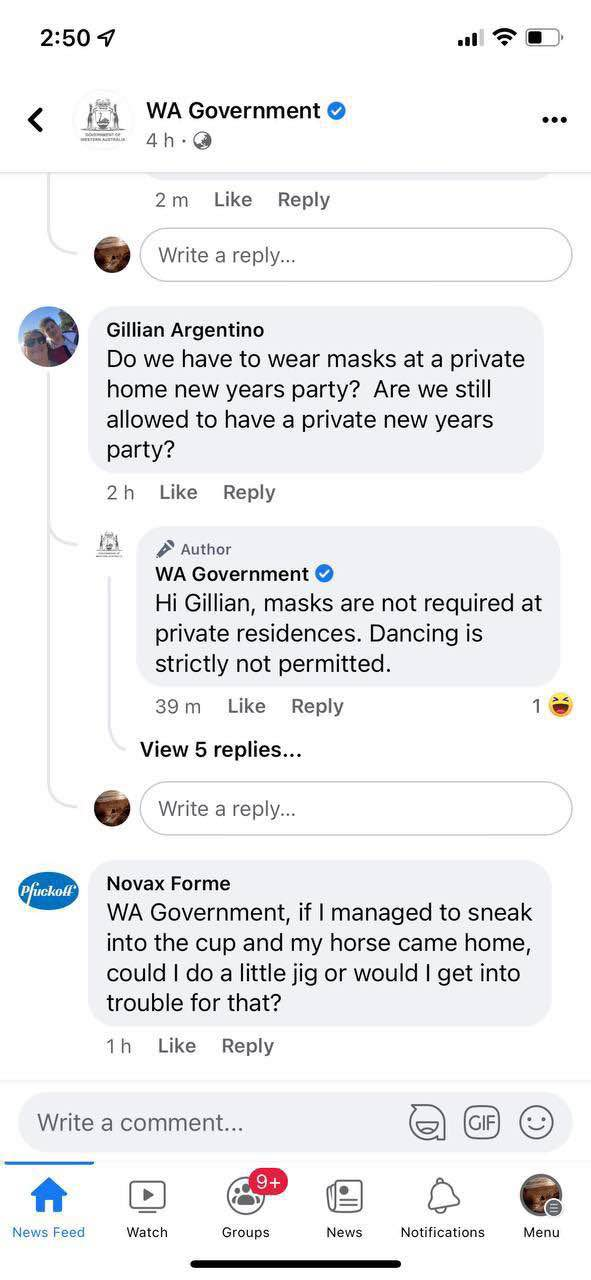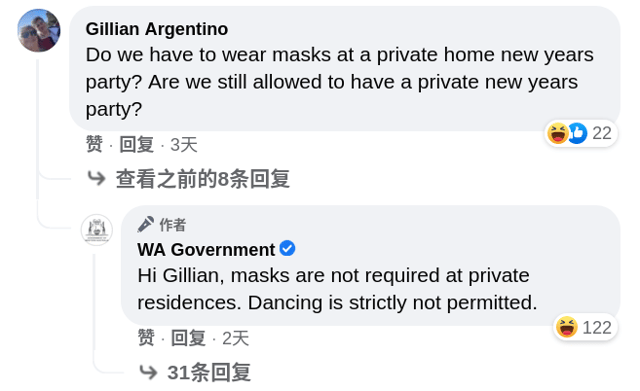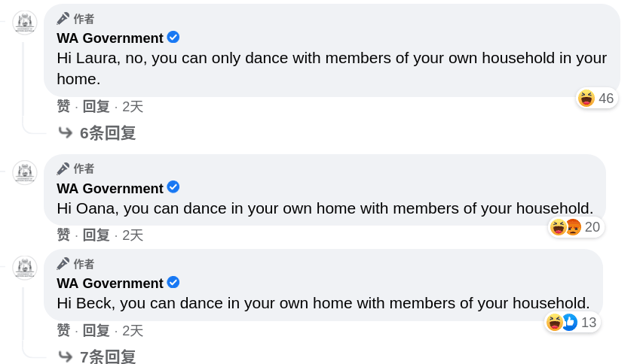Rebecca J. Stones’ answer has the facts and the sources. As someone in Western Australia, I think I can add the context.
Western Australia has been highly successful at keeping out COVID-19. The state has had 1 168 cases (9 deaths) total since the pandemic began, out of 430 523 cases (2 253 deaths) nationally.[1] That’s just 44 cases per 100 000, against a national rate of 1 672 per 100 000.[2]
The state government has used strong measures over the course of the pandemic, including limits on gatherings such as number of visitors, mask requirements, and yes, permitted activities like dancing.[3] The state’s success in keeping out the pandemic has been credited in large part to these measures,[4] which have also been highly popular with the public (the current government was re-elected in March 2021 in a landslide[5]). Restrictions have been short-term, and overall residents have been under far fewer limits than those in the rest of the country.[6]
On 19 December, an interstate traveller attended parties and nightclubs while infectious, beginning a new outbreak.[7] As a result, 30 new cases have emerged in three weeks, the biggest spike in months.[1] Restrictions were reintroduced on 23 December, and extended on 28 December.[8] The current end date is 4 January, although they may be extended again.
So much for the fully cited facts. Anecdotally, I can tell you that yes, the current restrictions are a bit weird and something of a joke… because they’re so selective. Why are they not requiring masks, or just banning gatherings full-stop? I can but speculate that it’s actually because of the holiday period: banning parties would be highly unpopular, so they tried to put in whatever measures they thought they could get people to accept, and ended up with this weird hodgepodge.
In that sense, yes, the measures could be said to be targeting Christmas/New Year’s gatherings, but in a “this is a period with a lot of social contact” way, not a “let’s ruin everyone’s fun like that town in Footloose” way.
Notes
1: Department of Health (WA), as at 3 Jan 2022.
2: Based on state and national populations from Australian Bureau of Statistics, as at 30 Jun 2021. Quick back-of-the-envelope calculations tell me that attempting to adjust to up-to-date figures would only make a difference in the last digit, at worst.
3: Wikipedia, COVID-19 pandemic in Western Australia. Yeah, I’m citing Wikipedia; I haven’t found a better timeline of what restrictions have been put in place and when—short of trawling back through the government’s announcements. But here’s an example of restrictions from Feb 2021.
4: e.g. WAtoday (27 Aug 2020).
5: ABC News coverage.
6: From the last restrictions lifting in July up until the current ones in December, there were essentially no limits on most activities, gatherings, or in-state travel. (“Most”: some large public events were starting to have proof-of-vaccination requirements, and some remote communities considered vulnerable can’t be visited.)
7: ABC News (23 Dec 2021)
8: Restrictions from 23 Dec, and again from 28 Dec.



